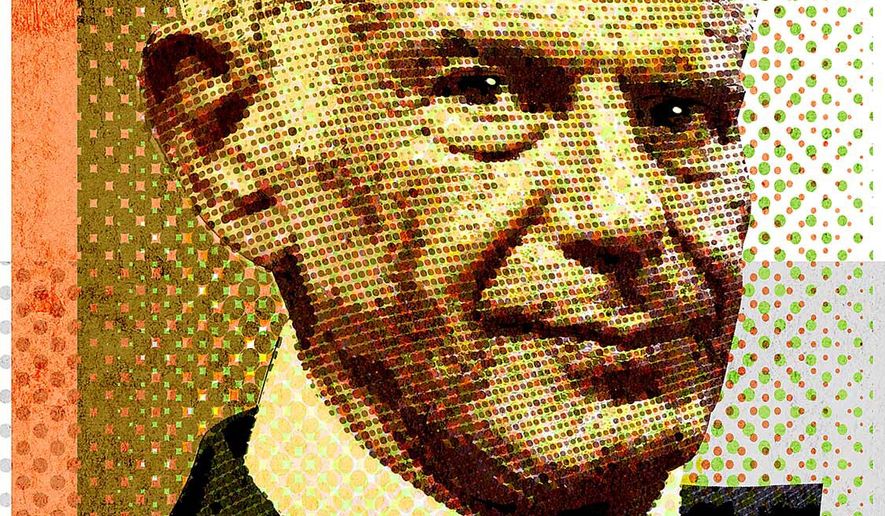OPINION:
In the early 1900s, G.K. Chesterton spoke of the unavoidable consequences of denying God as our Creator and worshipping science above the sacred. Observing that the naturalists of his day were only too willing to turn their science into a philosophy and then impose their new religion upon all of culture with near fanatic zeal, Chesterton said, “I [have] never said a word against eminent men of science. What I complain of is a vague popular philosophy which supposes itself to be scientific when it is really nothing but a sort of new religion and an uncommonly nasty one.”
Recognizing that science could never presume to compete in the moral arena of theology and philosophy, Chesterton went further: “To mix science up with philosophy is only to produce a philosophy that has lost all its ideal value and a science that has lost all its practical value. It is for my private physician to tell me whether this or that food will kill me. It is for my private philosopher to tell me whether I ought to be killed.”
Chesterton knew science could answer the questions of mathematics and medicine, but he, likewise, was keenly aware it had nothing at all to say about meaning and morality. He warned that scientific “progress” unrestrained by sacred principles was fraught with dangers. “Survival of the fittest,” he contended, may be an interesting academic discussion when applied to a vegetable, an animal, or a mineral, but when practiced on people, its consequences are nothing short of horrifying.
C.S. Lewis also spoke forthrightly of Western society’s diminishment of God while elevating man and technology to fill the void. Predicting the rise of what he and others labeled “scientism,” where naturalism and materialism would be uncritically elevated to the status of a religion, Lewis warned of a dystopia where public policy and even moral and religious beliefs would be dictated by professors and politicians only too eager to assume the role of our new cultural high priests.
In his novel titled “That Hideous Strength,” Lewis asks the reader to consider an obvious question: After two world wars in which scientism has brought us the “advancements” of eugenics and the mass slaughter of millions of people via poisonous gas, rapid-fire machine guns, ballistic rockets and atomic bombs, how is our new man-made god working for us?
“The physical sciences, good and innocent in themselves, [have] already … begun to be warped,” said Lewis. “[They have] been subtly maneuvered in a certain direction. Despair of objective truth [has] been increasingly insinuated into [scientism]; indifference and a concentration upon mere power [and personal despair], have been the result.” Lewis knew the struggle by the “fittest” for power and survival, when unhampered by any objective moral restraint, would always lead to the nightmare of Orwellian rule and self-destruction rather than the paradise promised by his professorial peers, and he cautioned his readers accordingly.
The list of those warning of the inevitable consequences of worshipping the created rather than the Creator is long. Chesterton, Lewis, J.R.R. Tolkien, T.S. Eliot and many more, both before and after them, all knew that when man reverses the equation of Creator and created and, thus, denies God as his origin, humanity always suffers dire consequences.
Chuck Colson, the late founder of the Colson Center for Christian Worldview, summarized it well: “Our origin determines our destiny. It tells us who we are, why we are here, and how we should order our lives together in society. Our view of origins shapes our understanding of ethics, law, [life, and, even the end of life] … . Whether we start with the assumption that we are creatures of a personal God or that we are products of a mindless process, a whole network of consequences follows, and these consequences diverge dramatically.”
If we are the intentional design of an intelligent creator, then we have a purpose, a destiny and a way in which to live our lives in order to fulfill that purpose. If we are nothing more than products of happenstance and chance, then we have no ultimate purpose and no meaning and no standard to guide the way we are to live or die. Morality becomes meaningless and right and wrong are nothing more than power plays and social constructs. And who has more power over life and death than he who stands alone in a room holding a noose or a bottle of pills?
Lewis, Chesterton and Colson all warned of this brave, new world where material comforts are all that matter; a world where all claims of moral truth are considered suspect; a world where we should “eat, drink and be merry for tomorrow we may die.” They knew that when we believe in the god we see in the mirror more than the God we see in the Bible, little is left for us at the end of days but to rise up and join with Anthony Bourdain, and a host of others, in singing with sardonic resonance and sad self-deception, “suicide is painless.”
• Everett Piper, president of Oklahoma Wesleyan University, is the author of “Not A Day Care: The Devastating Consequences of Abandoning Truth” (Regnery 2017).




Please read our comment policy before commenting.